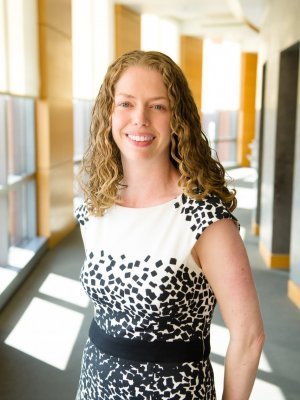Much of the field of behavioural economics concerns “enumerating all of the very many ways in which we, as humans, are imperfect decision-makers,” says Milkman, speaking at the Discovery Retirement Summit, a live hybrid event boasting a line-up of global retirement and behavioural change experts. “And absolutely both financial advisors and clients fit into the category of humans and, therefore, are biased in many ways.”
How cognitive biases and heuristics distort people’s judgment when thinking about financial data has been the subject of flourishing research since the pioneering work of Daniel Kahneman and Amos Tversky, who, in 1979, developed the prospect theory.
“I'm sort of a few generations later, and I have the approach of focusing on how we can patch the holes in judgment to help improve the choices people make,” says Milkman, a professor at the Wharton School at the University of Pennsylvania and author of the book, How to Change.
Milkman introduced delegates at the Discovery Summit to the idea of choice architecture and how it can help people make better retirement choices.
“I don't want to understate the quality of the human mind; it's pretty extraordinary. But for many, many years, economists modelled humans as if we were perfect decision-makers,” she says. The truth is, “we're decent decision-makers, but we make predictable errors.”
Milkman’s work rests on the premise that everywhere choices are made, they're being shaped by the environment. This could be, for example, on a website, in a form, or in conversation. “We have to present options to people in some way, and when we do that, we shape their decisions, for better or for worse,” she adds.
This is true for just about everything, from healthy eating to savings decisions.
“Once we recognise that and recognise that people are imperfect decision-makers, then we might want to think carefully about how to architect decision environments to help them make better choices that will lead to improved outcomes in the long run,” she argues.
To achieve this, Milkman introduced several research concepts that are shown to have an often surprising influence on people’s decision-making outcomes.
“Probably the most important insight from the entire field of behavioural science for savings decisions is the importance of setting wise defaults,” says Milkman.
The default effect is the concept that people will tend to accept the default option in a given choice environment – think ‘select here if you do not want to receive communication about promotions and product updates’ from a given service provider.
An example of this pointed to by Milkman shows that simply by making “opting in” for a retirement fund offered by an employer the default option can dramatically improve participation rates. In one seminal study, this difference was as high as 86% when the default was ‘opt-in’ compared to 49% when employees needed to actively select to opt-in.
“One factor which drives this is that you presume that’s what’s recommended,” says Milkman. “It also suggests that everyone else is doing it,” which relates to the power of social norms – another heuristic which is the tendency for people to make choices when they perceive others are doing it – “and it’s the path of least resistance.”
When combined with the framing effect, where people assume the default to be ‘their right’ or the ‘norm’, these influences result in the default effect having a potentially dramatic impact on choice outcomes.
Another critical concept introduced by Milkman is the importance of prompting people to plan and setting timely reminders, which work best when they have a fresh start moment, such as on their birthday or in the new year.
This involves “getting people to think about the date and time when they will make changes in their lives” and has been shown to be a really powerful tool we can use to help people make better decisions.
“If you have a detailed, concrete plan that involves a cue, like a date and time when you're going to do something, that serves as a trigger in memory that makes it less likely you will completely forget,” she explains.
This can also be particularly powerful when creating accountability, which, says Milkman, comes from the feeling of being scrutinised and judged by others.
“People aren't perfect: we make mistakes, and this is really the key finding from decades of behavioural science research. As a result of that, choice architecture matters – the way we design decision environments is critically important and we can improve people’s decisions,” she concluded.
Professor Katy Milkman
Behavioural scientist, Katy Milkman, is a professor at The Wharton School of the University of Pennsylvania and holds a secondary appointment at Penn’s Perelman School of Medicine. She hosts Charles Schwab’s popular behavioural economics podcast, Choiceology, and is the former president of the International Society for Judgment and Decision Making. Milkman co-founded and is now co-director of the Behavior Change for Good Initiative, a research centre that promotes the science of lasting behaviour change and whose work is featured on Freakonomics Radio. She has worked with numerous organisations on how to spur positive change, including Google, the U.S. Department of Defense, Walmart and Morningstar.






